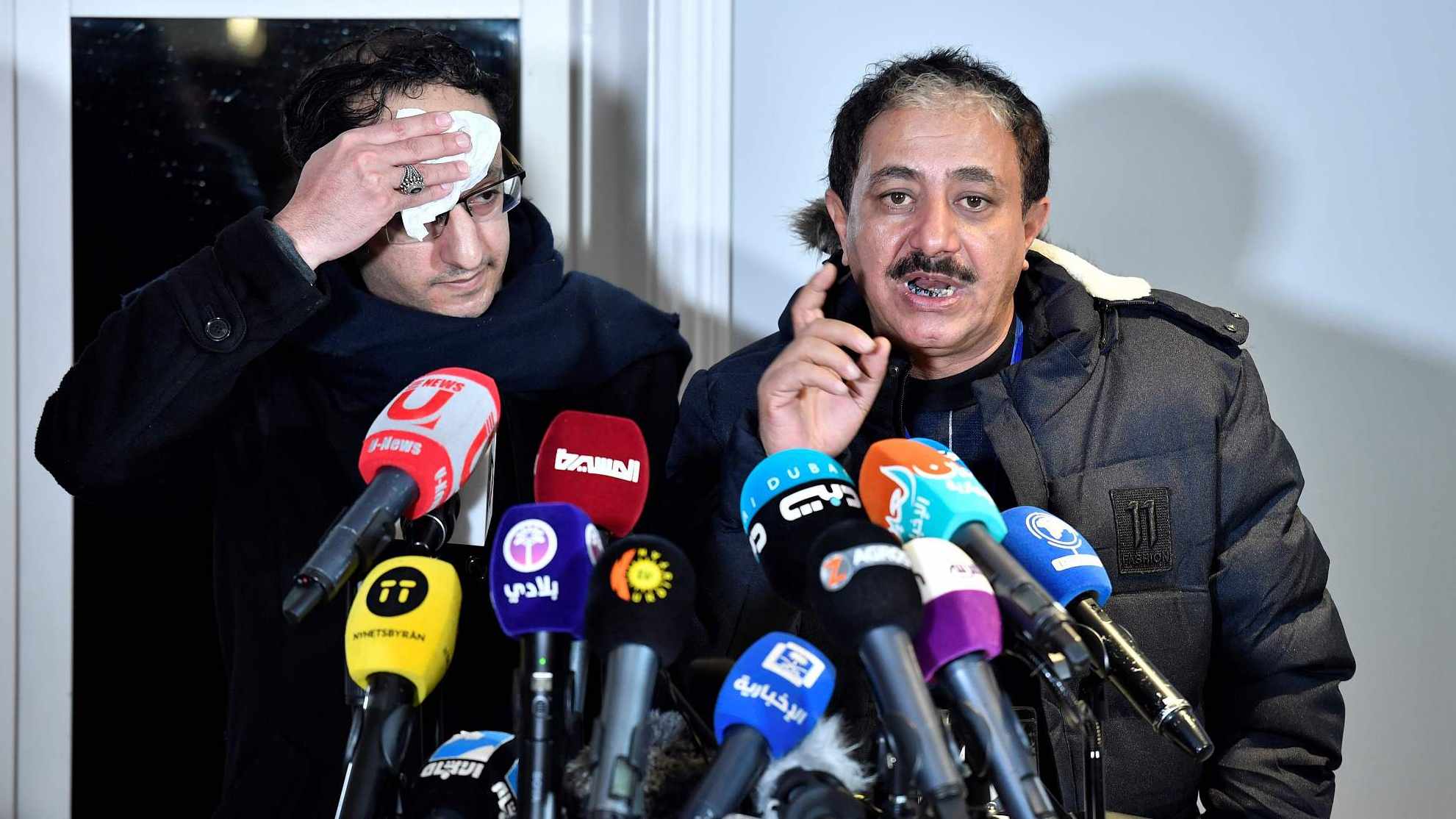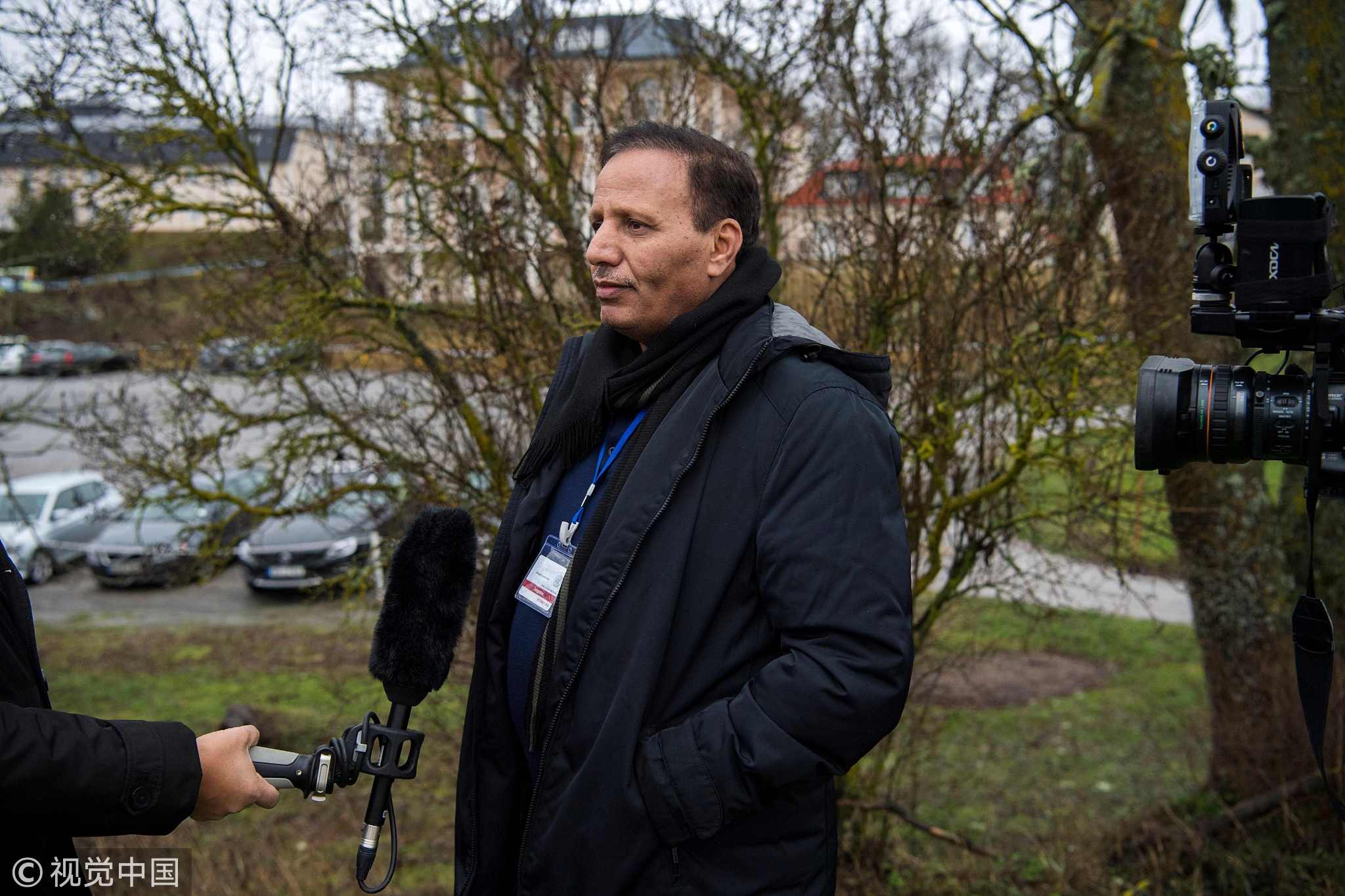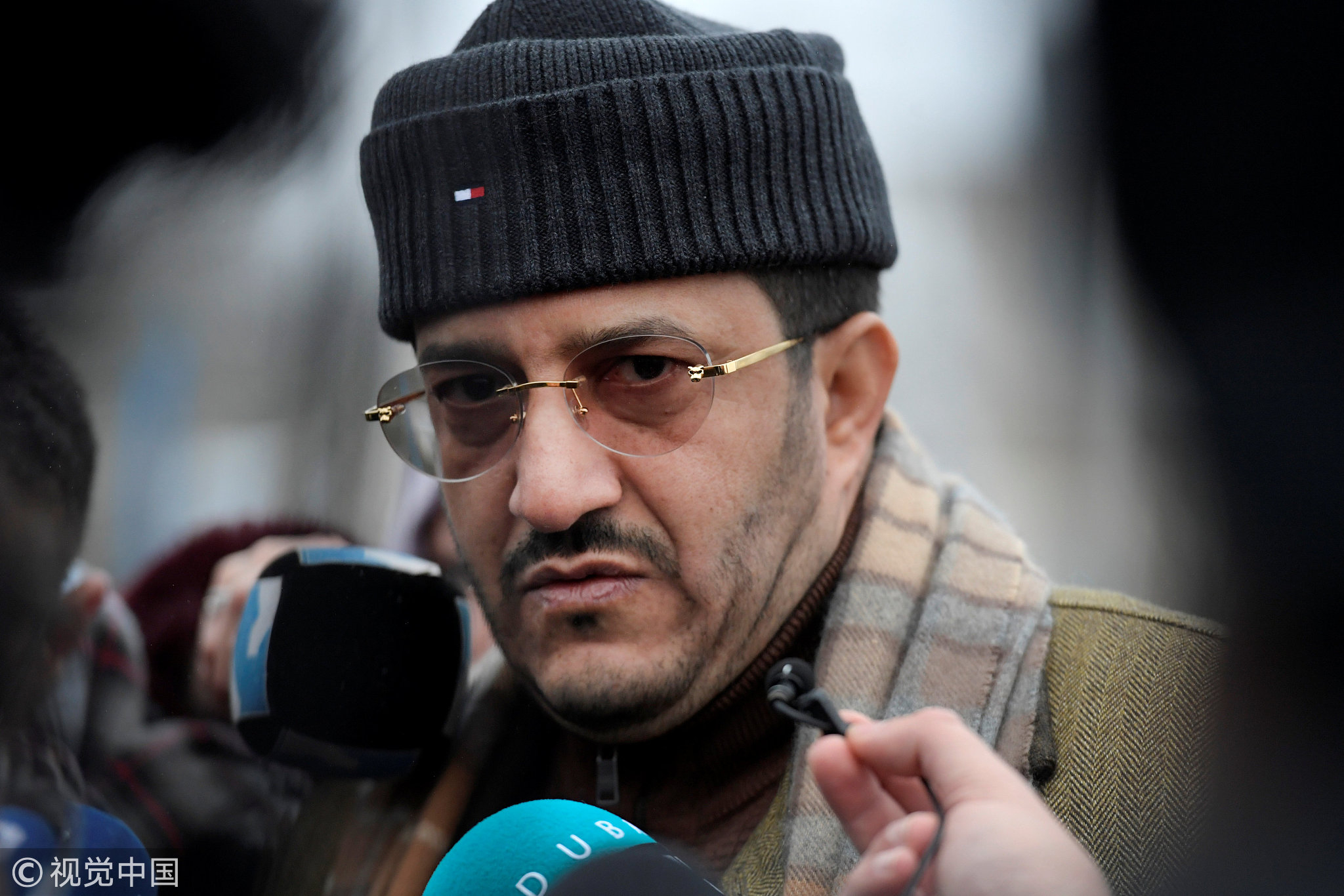
World
13:06, 09-Dec-2018
Stand-off between warring sides at Yemen peace talks over President Hadi's fate
Updated
12:15, 12-Dec-2018
CGTN

On Saturday, the third day of peace talks in Sweden between Yemen's warring parties aimed at halting the country's catastrophic four-year-old war, the upbeat mode subsided. Yemeni officials rejected the Houthi proposal for a new transitional government, saying removing President Abd-Rabbu Mansour Hadi will not solve the country's problems.
Abdul Malik al-Ajri, a senior Houthi leader, in an interview with Al Jazeera on Friday, suggested that a transitional government that represents all of Yemen and to which all parties will hand over weapons should be formed.
But the Yemeni delegation rejected the proposal, accusing the Houthis of sustaining the conflict.
Abdulaziz Jabari, a member of the government's delegation to peace talks in Sweden and a senior adviser to the president said, "the problem is with those, who through aggression, took over our country." He added that removing Hadi and forming a new transitional government meant that fighting over power will continue.

Abdulaziz Jabari, a member of the Yemeni government delegation, speaks to journalists during the ongoing peace talks on Yemen, Rimbo, Sweden, December 8, 2018. /VCG Photo
Abdulaziz Jabari, a member of the Yemeni government delegation, speaks to journalists during the ongoing peace talks on Yemen, Rimbo, Sweden, December 8, 2018. /VCG Photo
The peace talks between the warring sides, Hadi's government backed by Saudi-led coalition and Iran-aligned Houthi rebels, opened on Thursday on an upbeat note, after the two sides agreed to a broad prisoner swap.
Yet tensions began to rise when the issues of discussion transitioned to the fate of Sanaa airport and the port of Hodeidah.
The Yemeni government proposed on Friday to reopen the Houthi-held airport in the capital Sanaa on the condition that planes are inspected in the airports of Aden or Sayun which are under the government 's control. Marwan Dammaj, a member of the Yemen government delegation said this is to put an end to the people's suffering regarding transportation.
But Houthis rejected the offer, saying it was not in accordance with international standards.

Othman Hussein Faid Mujali, Yemen's Minister of Agriculture and Irrigation, speaks to media during the peace talks on Yemen, Rimbo, Sweden, December 7, 2018. /VCG Photo
Othman Hussein Faid Mujali, Yemen's Minister of Agriculture and Irrigation, speaks to media during the peace talks on Yemen, Rimbo, Sweden, December 7, 2018. /VCG Photo
The other unresolved issue is the fate of Hodeidah, a city on Yemen's western coast that houses the country's most valuable port and a major lifeline for humanitarian supplies.
The Houthis have earlier suggested that they are willing to hand over the strategic port to the UN in exchange for a ceasefire but did not comment whether or not they would leave the city. The Yemeni delegation, in return, warned that military offensive is still open if rebels reject Hodeidah pullout.
UN officials have sought to downplay expectations from the talk, initially suggesting that they don't foresee rapid progress towards a political settlement. UN envoy Martin Griffiths, who has engaged in intensive diplomacy between the two sides for months, has urged the two sides to be realistic and deliver the message of peace.

SITEMAP
Copyright © 2018 CGTN. Beijing ICP prepared NO.16065310-3
Copyright © 2018 CGTN. Beijing ICP prepared NO.16065310-3